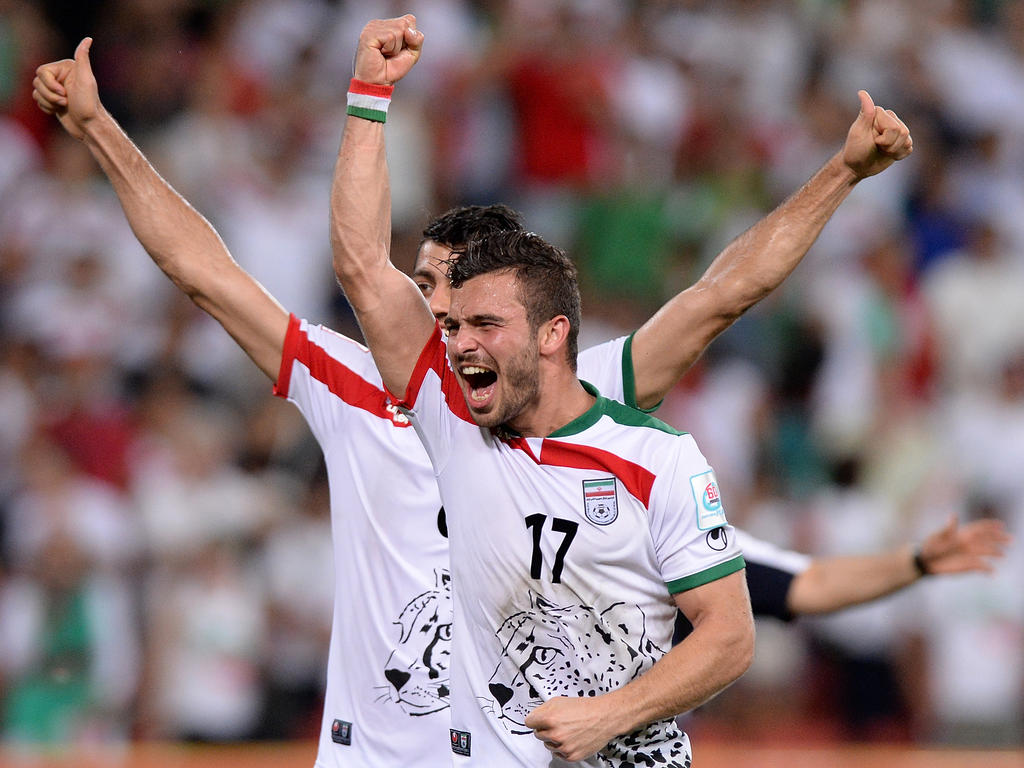Asian Cup agony for Gulf sides

The Asian Cup knockout stage prepares for lift-off on Thursday with just two Arab countries left in the mix, continuing an alarming trend in recent tournaments.
Of the nine teams who travelled more than 7,000 miles (11,300 kilometres) to Australia, only Iraq and the United Arab Emirates reached the quarter-finals as the balance of power, which has swung irrevocably to the East, shows no sign of being corrected.
"The European-based players, the way they train, the amount of games they play, the physicality of the game in Europe is intense," said Jordan coach Ray Wilkins. "That's what we have to come to terms with in the Middle East."
Iran, who captured three titles in a row between 1968 and 1976 but have failed to win it since, advanced with their Gulf neighbours but they will face bitter rivals Iraq in the last eight, further reducing western Asia's hopes.
Defending champions Japan have won four of the last six Asian Cups -- and three of the last four, their dominance briefly disrupted by Iraq's astonishing triumph in 2007.
And the shifting sands have coaches from the Gulf region befuddled.
"I can't say this is a big tragedy," said Saudi Arabia's caretaker coach Cosmin Olaroiu, underlining just how far the mighty had fallen.
"It is a big disappointment, but it's too much to call it a tragedy," added the Romanian after the Saudis, who won the last of their three titles in 1996, crashed out at the group stage, just as they did four years ago.
"Saudi Arabia will have to make changes and start building something solid for the future. Arab players are technically very good but they lack strength and organisation."
Many teams from the Gulf appeared to be running in quicksand playing against the fitter, more powerful East Asian sides such as Japan and South Korea, who boast several players with top European clubs, while Australia and Uzbekistan's muscle-bound players look hulking in comparison.
Glancing at the Japan teamsheet, names like AC Milan's Keisuke Honda and Borussia Dortmund's Shinji Kagawa leap out at you. Similarly, South Korea can call upon their jet-heeled striker Son Heung-Min, or Ki Sung-Yueng of Swansea City.
"These are guys who've played at an exceptionally high level," said Wilkins. "Their fitness levels are incredibly high. It's up to us in the future to build our players up to that strength and that power that they have."
Gulf Cup champions Qatar's flop was an embarrassment for the 2022 World Cup hosts, who have gone through 30 coaches since 1990.
"If you look at the Japanese legs, you will see the difference," added Wilkins after his side were beaten 2-0 by the holders.
"My head's still spinning. If you see the Japanese legs, you will see the difference. You have to have power, speed and ability now to work in world football."
Wilkins also suggested players being mollycoddled by clubs in the Middle East lacked the motivation to play in Europe.
"The Gulf is obviously extremely wealthy and these guys are financially looked after extremely well," said the Englishman.
"If you look at the Japanese players, look at the Australian players -- as soon as they can leave and play in Europe, they leave."





